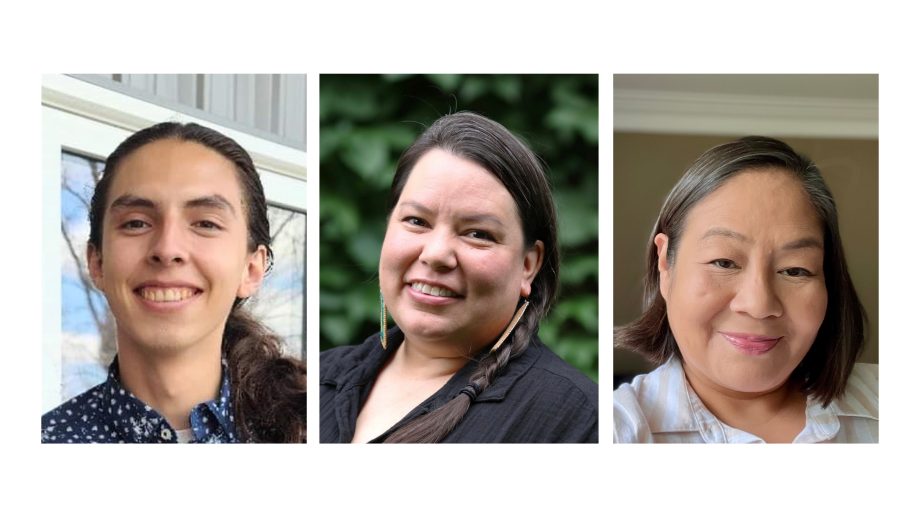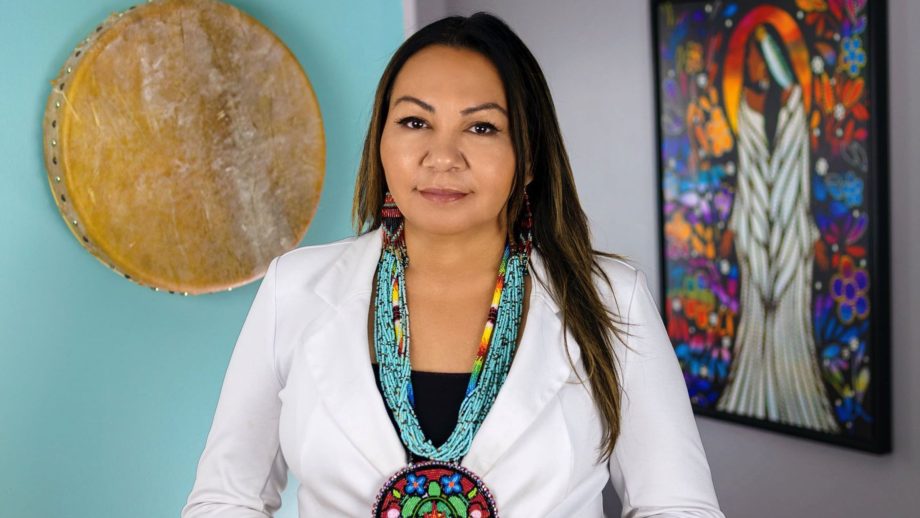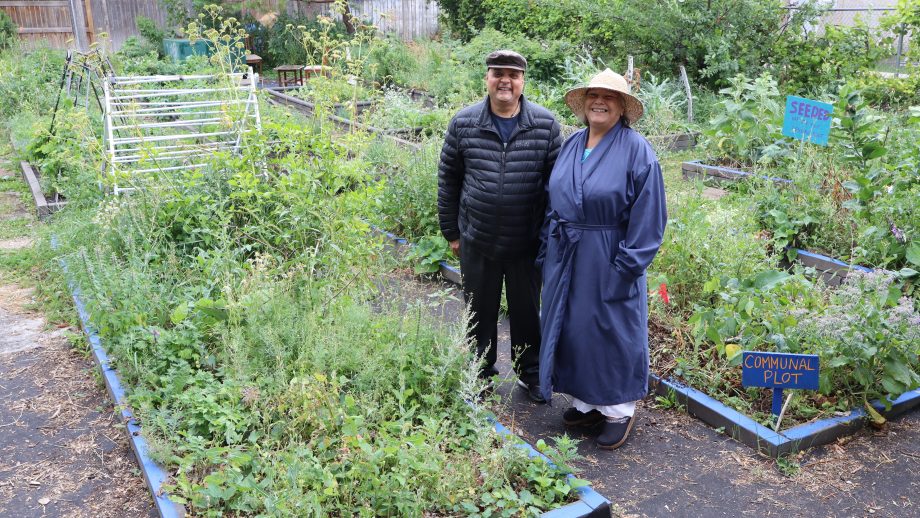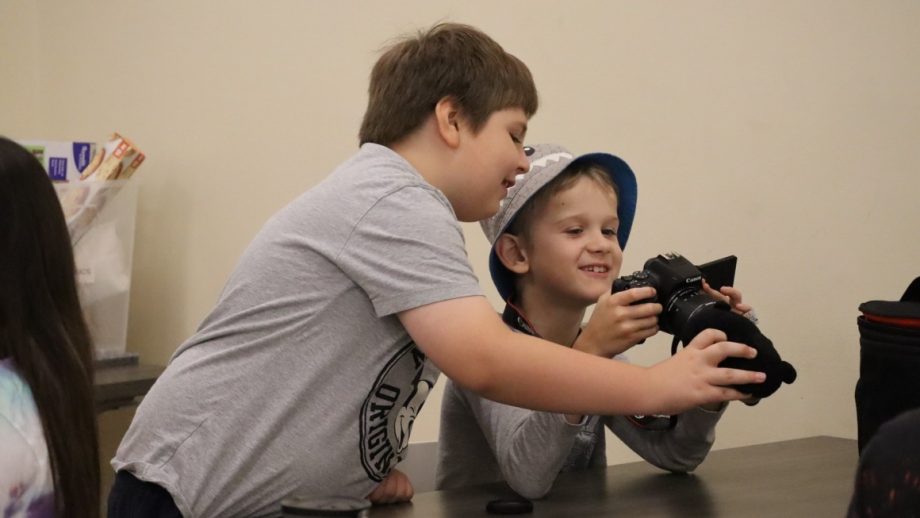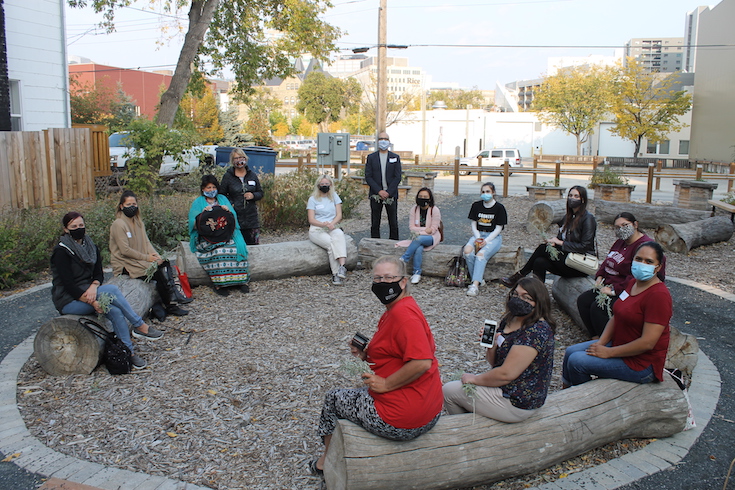
Developmental Studies students were welcomed to the program during a celebration at Langside Learning Garden earlier this fall. Photo supplied.
For the first time ever at The University of Winnipeg, there is an Indigenous cohort for the Development Studies Program this fall.
Early Childhood Educators in Manitoba from Lac Brochet to the north, Rousseau River to the south, and students from Behrens River, Cross Lake, Norway House, and Peguis, among other communities, are participating.
To welcome the new Indigenous cohort and other students in the program, Dr. Sheri-Lynn Skwarchuk, Director of Developmental Studies, organized and held an in-person celebration near campus on September 21 and live streamed the event for those unable to travel to Winnipeg.
“The blessing was held at Langside Learning Garden on a beautiful fall day with a warm breeze,” said Skwarchuk. “It was also the equinox, which Elder Mary Wilson reminded was a powerful day in Indigenous culture.”
Planning for the introduction of this cohort began last December when Skwarchuk was invited to a meeting with rural and northern Indigenous Head Start Directors, who were interested in starting a Developmental Studies Bachelor of Arts degree for some time.
While the plan, initially, was to have students on campus for classes, the arrival of COVID-19 threw a curveball at the group. Because not all students have an internet connection or reliable service, a remote learning plan had to be developed over the summer months.
Skwarchuk created a Course-in-a-Box. Students in an on-campus section, as well as the new cohort, received materials for this alternative delivery mode.
“All of the readings and activity materials were included in this box,” she explained. “Students are expected to check in with the professor once per week to stay connected and ensure progress is made during the fall term.”
The course outline is self-directed with all content for the course contained within the box. Students have the option of mailing, emailing, or submitting assignments through NEXUS.
To date, Skwarchuk has made connections with most of the course’s 49 students by way of an individual check-in phone call.
“Some students were surprised and had never received a call from a professor before,” she said. “I wanted to encourage them to contact me if they were feeling disconnected and encourage everyone to stay on track with weekly course goals. I have had comments from some students that they appreciate the different approach to the course.”
The long-term goal is to maintain this option for years to come. In the short term, however, the plan is to get the current group through the program and an unprecedented time in their studies.
“There’s no plans for a new group next year, but perhaps the year after,” Skwarchuk said.
Those interested in learning about the Course-in-a-Box educational approach or the Developmental Studies program can contact Skwarchuk at s.skwarchuk@uwinnipeg.ca.

